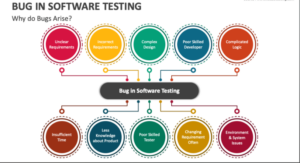The importance of Quality Assurance in the Software Development Life Cycle (SDLC) cannot be over-emphasized. There are various stages involved in Software Development Life Cycle. From Requirement Analysis to Design, to Implementation, to Testing, to Deployment, and finally to Maintenance, a Quality Assurance specialist has a crucial role to play at every stage.
In this article, we will discuss how QA each stage.
1.Requirement Analysis
In this stage, the QA works with the business analysts to conduct a feasibility study of requirements. The purpose is to create test plans, analyze possible risks, and build a strategy for a quality assurance testing approach depending on the type of testing that will be used. Without a QA, it would be difficult to conduct a good feasibility study which will drastically reduce the success rate of the software project. You can learn more about how requirement analysis by enrolling in an online QA training.
2.Design
This is a critical stage, and as such, it is important to review the design, confirm its testability, and affirm that the design architecture meets all functional and non-functional requirements. A good QA specialist will also collaborate with the UI/UX designers to make a Data Flow Diagram (DFD) and a good QA engineer will test the design to ensure that the completed design imitates the end-user behavior.
3.Implementation
In Software development, there are always various methods a developer can use to implement a new feature. QA is important here because a QA specialist could assess the potential impacts of each method based on user experience. Also, if issues arise during daily standups, QA can step in to help in resolving the issues.
4.Testing
The importance of QA in testing is quite obvious. But apart from writing test cases and bug reports, a QA specialist is involved in keeping track of all updates when available and prioritizing client-supported devices and browsers.
5.Deployment
It is crucial that a QA specialist is on standby during deployment. As soon as the software is released live, the QA specialist jumps into gear to carry out smoke testing (which is to ensure the deployment didn’t cause any issues).
- Maintenance
Even if all the above stages are well carried out, there are cases where bugs can still slip through. The best manual/automation testing can’t get rid of 100% of bugs on all the available browsers/devices. A QA specialist should be on hand to test the defect fixes or upgrades to features.
Without QA, the Software Development Life cycle (SDLC) process is likely to fail. There are many reasons not to ignore quality assurance. Here are some of the apparent ones.
Why QA is Important in the Software Development Life Cycle
1.QA saves your money and reputation
By applying QA to your SDLC process, you are likely to spend more money and your reputation will likely be questionable. Take for example you want to build a trading software and it was not properly tested, your customers would definitely lose their money. Even though you can compensate them, you would not be able to save your reputation. QA helps you to detect all bugs before the customers see them.
2.QA increases Customer Loyalty
When you create software that is free of bugs, your customers won’t have any trouble when using it. Also, if you respond to your customers’ complaints and ensure that all complaints are swiftly fixed, you will command your customers’ respect and they will see that you provide the highest service level. As a result, they would become more loyal.
3.QA prevents Emergency Situations
If a piece of software is developed for internal use (take for instance CRM), and it is to be used for better communication with customers. One minor bug can cause severe failures like communication breakdown and data loss and it might be impossible to recover the information without incurring more expenses.
4.QA contributes to a larger number of sales
As a business owner, having software that is free from defects will ensure the satisfaction of your customers. This can in turn lead to more publicity for your business leading to more sales. The more quality customers see in your brand; the more customers buy your product quickly.
5.QA impacts the productivity of Employees
Employees can work more efficiently when obstacles like software defects don’t get in their way. It is not their job to find out why software fails, and that is why the work of QA in software quality is indisputable.
6.QA increases your Software Security
Quality assurance contributes to eliminating vulnerabilities and shortcomings to prevent attacks from malefactors. The service cost for QA is little compared to the financial loss due to poor protection level.
In conclusion, QA is too important to be neglected in the Software Development life cycle process because Software quality is crucial to its success. If you are considering becoming a Quality Assurance specialist, consider enrolling in this QA certification training for beginners.































One Response
You are posting a very good article. Thanks for sharing this useful article with us. keep posting.